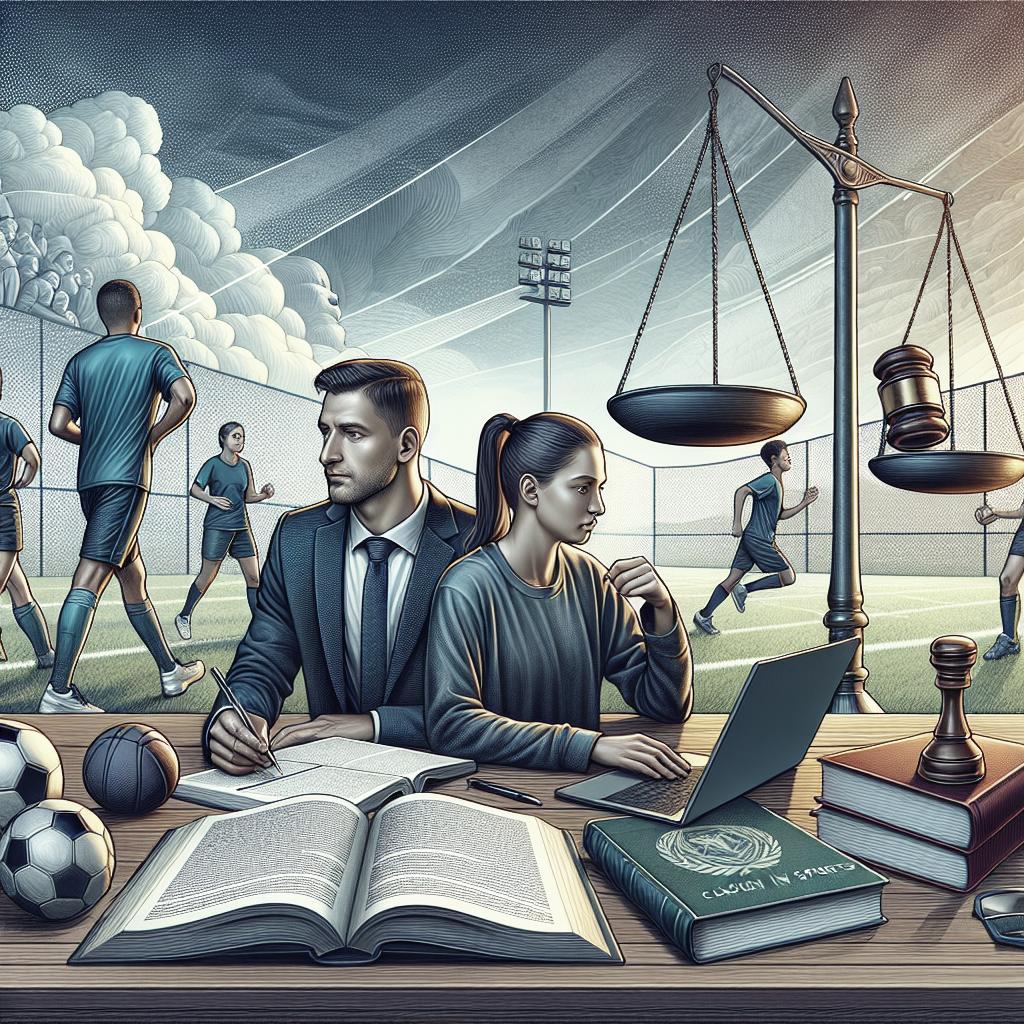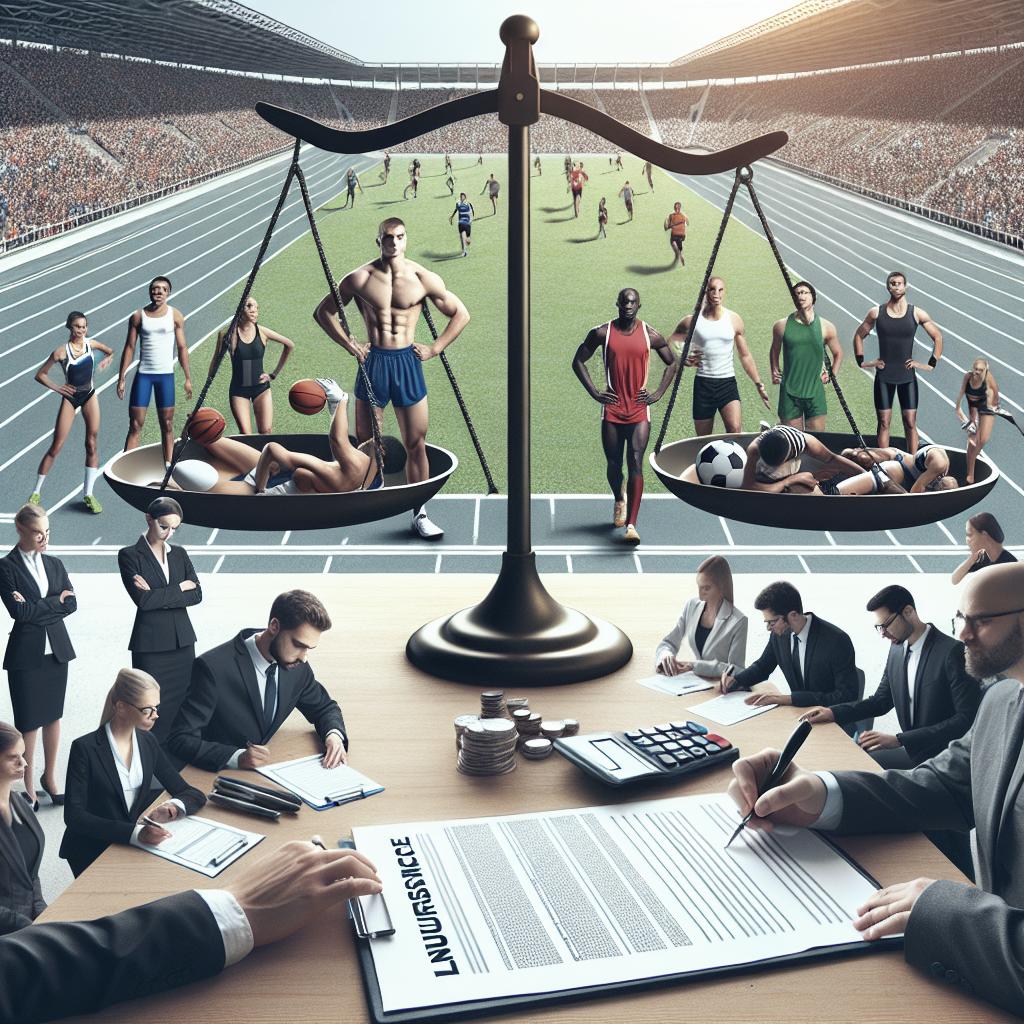<>
“`
Sports coaches play a critical role in developing athletes’ skills, fostering team dynamics, and promoting the overall well-being of players. Given their influential position, understanding their legal rights and responsibilities is essential for protecting both the coaches and the athletes. This blog post delves into the key legal aspects that every sports coach must be aware of, covering contracts, duty of care, anti-discrimination laws, and liability issues. Whether you are a seasoned coach or just starting out, this information will help you navigate the complexities of your legal obligations and rights.
Contracts and Employment Agreements
Sports coaches often operate under various types of contracts and employment agreements, which outline terms such as duration, compensation, and duties. These agreements serve as a legal foundation for the relationship between coaches and their employers, whether they are schools, clubs, or private organizations.
Understanding the specifics of your contract is crucial. For example, knowing the conditions under which you can be terminated or what happens if the team dissolves will protect you from unexpected issues. A well-drafted contract will also clearly delineate job expectations and performance metrics, ensuring both parties are on the same page.
It’s advisable for coaches to seek legal counsel before signing any employment agreement. Reviewing contract clauses like non-compete agreements, confidentiality, and dispute resolution procedures will help you safeguard your rights and future career prospects.
Duty of Care and Safety
One of the paramount responsibilities of sports coaches is the duty of care towards their athletes. This legal concept requires coaches to act in the best interest of their players, ensuring their physical and emotional well-being during training and competition.
This involves creating a safe training environment, conducting regular risk assessments, and providing appropriate medical care in case of injuries. Neglecting these responsibilities could result in legal action against the coach or even the organization they represent.
Moreover, coaches should familiarize themselves with pertinent laws and guidelines related to sports safety. Updating safety protocols, attending regular training on first aid, and understanding concussion management are essential steps in fulfilling your duty of care.
Anti-Discrimination Laws
Anti-discrimination laws are designed to promote equality and prevent unfair treatment based on race, gender, disability, and other protected characteristics. Coaches must adhere to these laws to create an inclusive environment for all athletes.
Implementing practices that promote diversity and inclusivity will benefit not only the individuals but also the team as a whole. This includes offering equal opportunities for participation, making reasonable accommodations for disabled athletes, and promptly addressing any instances of discrimination or harassment that arise.
Failure to comply with anti-discrimination laws can lead to severe legal consequences, including lawsuits and loss of reputation. Therefore, understanding and integrating these principles into your coaching philosophy is indispensable.
Liability and Negligence
Coaches can be held liable for negligence if their actions (or lack thereof) cause harm to an athlete. Understanding your liability involves knowing the standards of care expected in your specific coaching context and taking proactive measures to meet these standards.
Negligence claims can arise from various situations, such as inadequate supervision, improper training techniques, or failing to provide necessary medical attention. Ensuring you have comprehensive insurance coverage can mitigate the financial risks associated with such claims.
Additionally, maintaining detailed records of training sessions, incidents, and communications can serve as valuable evidence in defense against negligence claims. Being proactive rather than reactive is the key to managing liability effectively.
Intellectual Property Rights
Coaches often develop unique training programs, methodologies, and other proprietary content. Protecting these intellectual property rights ensures that your hard work is not unlawfully exploited by others.
Filing for copyrights, trademarks, or patents can safeguard your creations and give you legal recourse in case of unauthorized use. Additionally, being aware of your organization’s policies regarding intellectual property will clarify who holds the rights to content developed during your tenure.
For freelance or independent coaches, drafting agreements that explicitly address ownership and usage rights of intellectual property is crucial. This is especially relevant when collaborating with other professionals or institutions.
Codes of Conduct and Ethics
Adhering to established codes of conduct and ethical guidelines is a legal obligation that reflects on a coach’s professionalism and integrity. These codes often cover areas such as fair play, respect, and responsibility, providing a framework for acceptable behavior both on and off the field.
Violations of these codes can have serious repercussions, including disciplinary actions, license revocations, and legal penalties. Coaches should regularly review these guidelines and integrate them into their daily practices to uphold the highest standards of conduct.
Creating a culture of ethical behavior within your team can also prevent issues related to bullying, substance abuse, and other detrimental activities. Emphasizing the importance of ethics will not only protect you legally but also enrich the overall sporting experience for everyone involved.
Privacy and Confidentiality
Handling personal and sensitive information about athletes requires a keen understanding of privacy laws and data protection regulations. Coaches often have access to medical records, performance statistics, and personal details that must be handled with the utmost confidentiality.
Implementing robust data protection measures, like secure storage and restricted access, will help in safeguarding this information. It’s also essential to inform athletes and their guardians about how their data will be used, stored, and shared.
Breaching confidentiality can lead to legal consequences and loss of trust. Coaches should receive regular training on privacy regulations like GDPR or HIPAA, depending on their jurisdiction, to ensure compliance and protect athletes’ privacy.
Summary of Main Points
| Aspect | Key Points |
|---|---|
| Contracts and Employment Agreements | Understanding terms, seeking legal counsel, non-compete clauses. |
| Duty of Care and Safety | Creating a safe training environment, regular risk assessments, medical care. |
| Anti-Discrimination Laws | Promoting inclusivity, equal opportunities, addressing discrimination. |
| Liability and Negligence | Standards of care, insurance coverage, maintaining records. |
| Intellectual Property Rights | Copyrights, trademarks, organizational policies, ownership agreements. |
| Codes of Conduct and Ethics | Fair play, respect, responsibility, ethical behavior. |
| Privacy and Confidentiality | Data protection, secure storage, privacy laws compliance. |
“`


